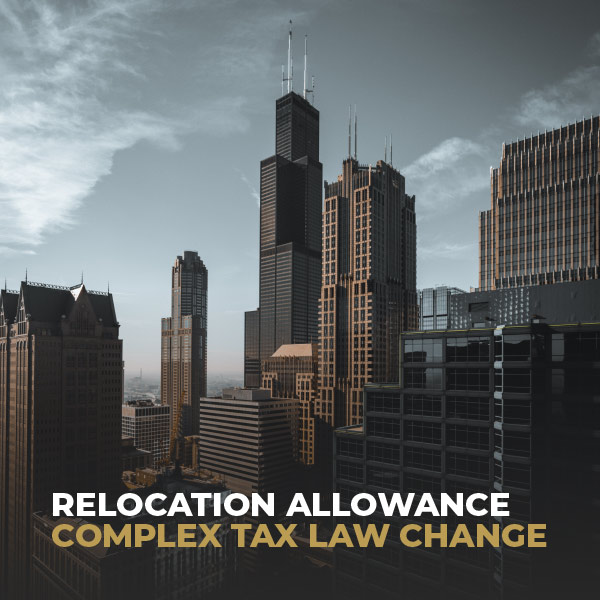RELOCATION ALLOWANCE – COMPLEX TAX LAW CHANGE
The very old and tested dispensation of paying an employee 1 month’s tax free relocation allowance, on moving residency for employment, has been repealed by SARS. The new rule applies effective 01 March 2016 onwards and unfortunately the new rule comes with significant uncertainty in application.
Where an employer bears expenses associated with relocating an employee, the employer is providing the employee with a taxable benefit that is subject to tax. That is, unless reliance is placed on the exemption in section 10(1)(nB) of the Income Tax Act, No.58 of 1962 for qualifying expenditure.
The qualifying expenditure may broadly be broken down into three categories:
- Travel expenses;
- Cost of selling an employee’s previous home and cost of settling into the employee’s new home (“settling in costs”); and
- Costs associated with certain temporary accommodation (“temporary accommodation cost”).
Travel expenses:
Travel expenditures that qualifies for the exemption are those expenses incurred by the employer in transporting the employee, the members of his household and his or her household goods from his or her previous place of residence to the new place of residence. According to SARS’ guide for employer’s Typical examples of qualifying expenditure include:
Settling in cost:
Prior to 1 March 2016, SARS’ practice was to allow employers to pay an employee the equivalent of 1 month’s basic salary tax free to cover settling in costs. From 1 March 2016, this is no longer the case. Employees will now have to prove that the expenses were incurred to cover qualifying settling costs before reliance may be placed on the exemption. That begs the question – which costs qualify:
Expenses that qualify are those expenses directly related to the sale by the employee of his previous home and settling into new accommodation. There is no bright line test that may be applied to determine whether an expense qualifies or not. Each expense will have to be considered on its own facts. SARS, however, in their Guide for Employers in Respect of Employees Tax (2017), (“the SARS guide”), lists the following expenses as qualifying expenses:
- Bond registration and legal fees;
- Transfer duty;
- Bond cancellation fees;
- Agents commission;
- Settling in fees;
- replacement of curtains;
- Vehicle registration fees;
- School uniforms;
- Water, electricity and telephone connections;
- Internet connections;
- Necessary housing refurbishments;
- Affiliation registration costs; and/or
- Levies
In our view, the list of expenses above is not exhaustive.
Temporary accommodation cost:
These are costs incurred of hiring residential accommodation in a hotel or elsewhere for the employee or members of his household during the period ending 183 days after the employee’s transfer took effect or after he took up his appointment, as the case may be, if such residential accommodation was occupied temporarily pending the obtaining of permanent residential accommodation.
![2025-logo-[Recovered] Tax Consulting South Africa](https://www.taxconsulting.co.za/wp-content/uploads/2025/01/2025-logo-Recovered.png)

